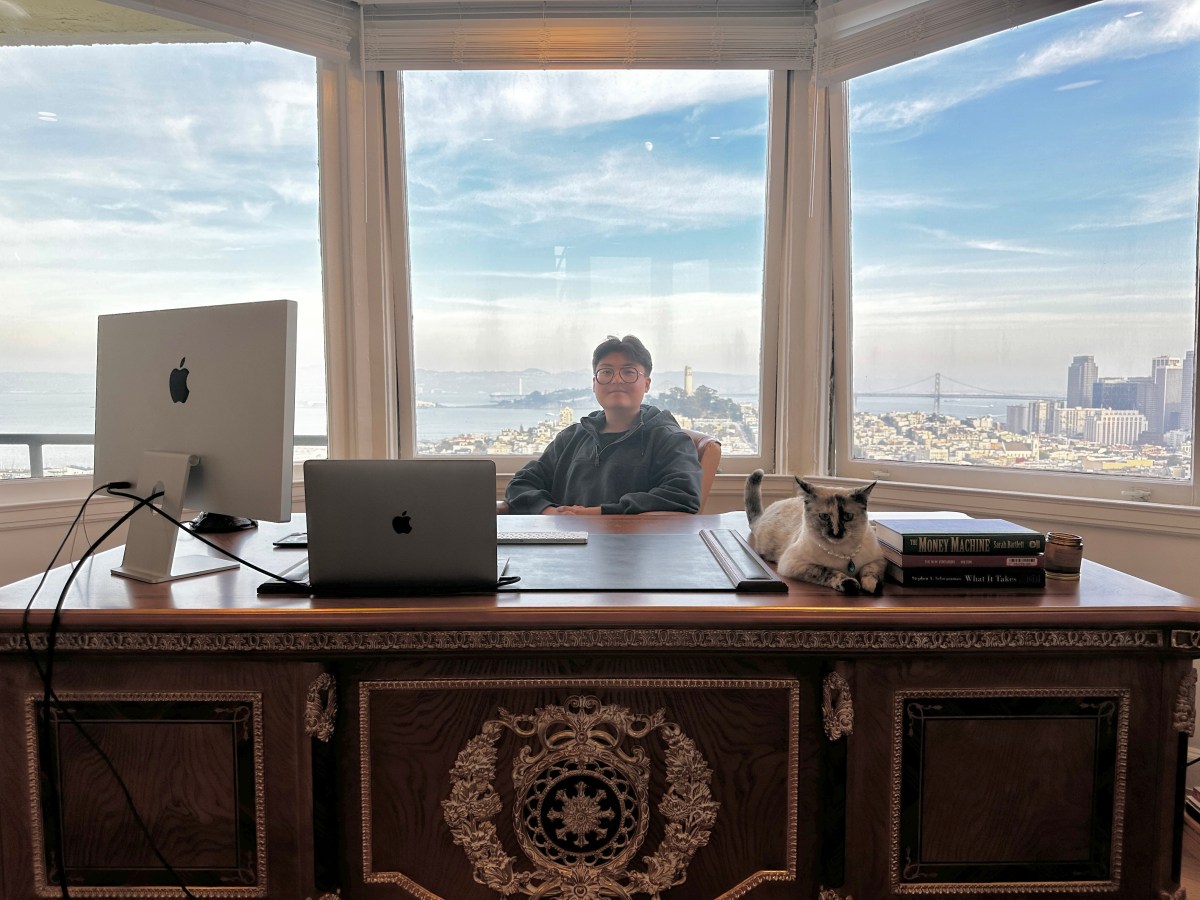When Koko Xs considered pursuing a career as a VC after he graduated from college last year, he observed a handful of trends that suggested he should do something else. He noticed that it’s hard to land deals and it takes a long time to see returns, given that most VC funds typically take a decade to mature.
Yet, he wound up being a VC anyway. And now, at the tender age of 21, Xs has already secured $17.5 million in committed capital for his first solo fund from backers like Marc Andreessen, Chris Dixon, Kevin Hartz, Josh Wolfe, Lux Capital, and anchored by fund of funds Nomads.
He’s also already on the cap tables for the seed rounds of a handful of super hot startups, notably defense tech Mach Industries – where he worked for a few months before leaping into being a VC – and AI chip maker Etched. This after meeting the also-young founders, Mach Industries founder and Thiel Fellow Ethan Thornton and Etched’s Gavin Uberti, who dropped out of Harvard to found the AI chip startup. Xs says he was able to invest out of saving $140,000 from tuition and earnings from the jobs he worked while studying at university.
Xs, who was born in Shenzhen, China, and moved to a small town in Massachusetts when he was twelve, majored in math at New York University. He thought he wanted to get a PhD, with the idea of inventing some technology that he could commercialize. So he cold emailed 3,000 PhDs who were a mix of founders, operators and VCs. Through that he got in touch with Lux Capital venture partner Ian Peikon, who redirected him to Lux GP Brandon Reeves.
It was “serendipitous,” Xs tells TechCrunch: Lux was just up the street from the NYU campus, and the firm is known for its investments in deep tech. “He really was the first professional startup person I met,” Xs said of Reeves. The correspondence proved fruitful: at the beginning of last year, Xs joined Lux working under Reeves as an investment analyst.
He only spent a few months at Lux before joining Thornton at Mach as head of growth in 2023, and he was at the company when it landed a $79 million series A scarcely four months after a $5.7 million seed round led by Sequoia Capital — the firm’s first investment in defense tech.
But after a few short months there, he decided operating wasn’t for him. As he put it, “It was a lot of doing, not a lot of thinking, whereas venture is the opposite. It’s a lot of thinking, not a lot of doing.” He started fundraising in April and he anticipates deploying about a third of the fund by the end of the year.
He aims to use that money to fund deep tech companies and what he calls “deep infrastructure” companies, that may not be traditional hard tech on paper but nonetheless index to a particular market trend. An example, according to Xs, would be investing in Microsoft back in the 1970s or 1980s, which would’ve given an investor exposure to essentially all PC OEMs at the time.
“I think a lot of the deep tech stuff that a lot of my peers and friends end up investing in end up being quite gimmicky, quite component based.” To Xs, the potential returns on these types of companies just isn’t extreme enough.
He admits that multi-stage funds have major advantages over mid-sized and solo funds, and the data backs him up. Since VC funding became tight in 2022, emerging solo funds have been the hardest hit, with fewest successfully launched in 2024 in a decade, according to Pitchbook and the National Venture Capital Association’s 2024 Q3 report.
But Xs thinks that small funds, like his, can use boutique strategies to win deals. The opportunity is only going to grow, he thinks, because venture underwrites technology – a sector that he thinks could even displace services, agriculture and industry to account for as much as half the global GDP in 20 years.
There are some hugely successful star solo fund VCs, like Elad Gil, who raised over $1 billion for his third fund last year; or Lachy Groom who has raised multiple funds.
In the immediate term, Xs is taking an aggressive approach with his fund, aiming to write checks to fifteen companies that would make up 80% of the fund’s capital. Through those positions, he’s aiming to secure 1% of a $10 billion company. He’s looking for founders that he says are “out of distribution,” which he defines as people that have endured extreme hardship, who are very neurodivergent, or people who take an “activist approach” to existential problems.
In the longer term, Xs has considerably more ambitious plans than just venture investing. He wants to grow out a number of business lines, including venture index funds, providing venture credit, and rolling up companies with a buy-and-build model.

